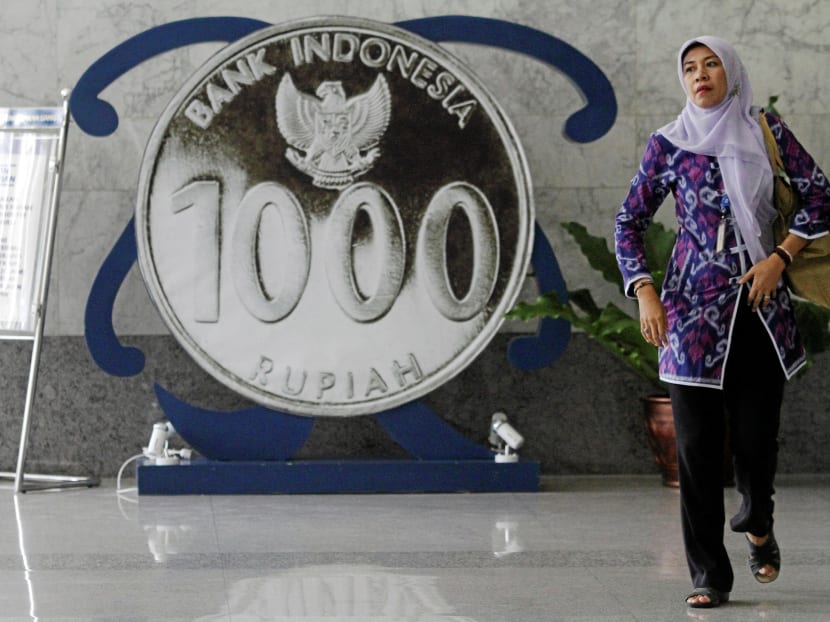Singapore denies cutting tax rates to 'thwart' Indonesia's tax amnesty programme
JAKARTA — Singapore has not implemented any policies to thwart Indonesia’s tax amnesty programme, the Singapore Embassy in Indonesia said in a statement on Friday (July 22), refuting claims in Indonesian media accusing Singapore and its banks of coming up with a special scheme for Indonesians to leave their assets in the city state instead of repatriating them home.
JAKARTA — Singapore has not implemented any policies to thwart Indonesia’s tax amnesty programme, the Singapore Embassy in Indonesia said in a statement on Friday (July 22), refuting claims in Indonesian media accusing Singapore and its banks of coming up with a special scheme for Indonesians to leave their assets in the city state instead of repatriating them home.
“Singapore has not cut tax rates, nor changed our policies in response to Indonesia’s Tax Amnesty Programme,” said the Embassy’s statement.
On Saturday, the Ministry of Finance (MOF) and the Monetary Authority of Singapore (MAS) issued a statement reiterating the Embassy's comments.
“Recent claims in the Indonesian media that Singapore is implementing policies to ‘thwart’ Indonesia’s tax amnesty programme are untrue. Singapore has not cut tax rates or changed any of our policies in response to Indonesia’s Tax Amnesty Programme.
"We subscribe to internationally agreed standards for combating money laundering and for exchange of information. If there is any case of suspected cross-border tax evasion, concerned authorities can approach Singapore – we have assisted and will continue to assist in line with the international standards,” the MOF and MAS said in a joint statement.
The statement's came after Indonesia’s Parliament last month passed a tax amnesty law aimed at drawing billions from wealthy Indonesians abroad and from tax evaders at home to help finance infrastructure and boost economic growth.
The law, which kicked in on Monday (July 18), grants special personal income tax rates to tax evaders who declare their past earnings between this month and next March. People and companies that declare their earnings and pay the special taxes will not be penalised for having failed to declare them before. Indonesia, a country of more than 250 million people, has only about 30 million registered taxpayers.
Under the amnesty, tax rates will range from two to 10 per cent, depending on how quickly an individual declares his assets and whether the capital is repatriated to Indonesia.
It was reported in Indonesian media that Singaporean banks have offered to pay the tariff difference — four per cent versus two per cent — between declaring the assets and not repatriating them to Indonesia between July and September.
Mr Yustinus Prastowo, the executive director of Centre for Indonesia Taxation Analysis, told the Jakarta Globe he had heard about the offer first-hand from Indonesian businessmen who have been approached personally by private agents.
“This type of incentive is legal and the Indonesian government must be ready to face it,” Mr Prastowo said.
Various Indonesian politicians have also weighed in on the issue, warning Singapore not to sabotage the programme.
“I want to remind Singapore to put away the policy and I hope that (reports of Singapore thwarting the programme) are not true, because it will very much obstruct the success of the Tax Amnesty Law”, said Indonesian House of Representatives Speaker Ade Komarudin.
“We’ve been friends for a long-time, don’t ruin it for your ego”, he said.
“Every country wants to survive,” Vice-President Jusuf Kalla told reporters on Thursday. “It (only) proves what people always say that most of the money stashed in Singapore comes from Indonesia.”
Minister of Finance Bambang Brodjonegoro said he is not afraid of the move by the Singaporean banks. “Just let it be, I am not afraid of Singapore which is just a small country like that,” he told Indonesian media on Tuesday. He had previously said the amnesty is expected to draw about 165 trillion rupiah (S$16.9 billion) for the government.
In its statement, the Singapore Embassy in Indonesia said that Singapore thrives on being a clean and trust financial centre.
“We have no interest in sheltering illicit tax monies. We subscribe to the internationally agreed standards, including for money laundering and for exchange of information,” it added.
“If there is any such case of suspected cross-border tax evasion, the Government concerned can approach Singapore – we have assisted and will continue to assist in line with the international standard.”
Mr Robin Heng, the Global Market Head for Indonesia and Philippines of the Bank of Singapore, the private banking arm of OCBC, told TODAY: “Bank of Singapore will not be paying the tariff difference of two per cent for clients in order to keep their funds in Singapore.”
“It is not appropriate for us to do so,” Mr Heng added.
Ms Tan Su Shan, co-head of the Monetary Authority of Singapore’s Private Banking Industry Group, said that tax amnesty programmes are generally a useful tool for individuals to regularise their tax affairs with their respective tax authorities.
“Indonesian individuals should seek proper tax advice and determine if and to what extent the tax amnesty programme applies to them, based on the details that have been announced,” she said in an email to TODAY.
“Banks in Singapore will provide the necessary support for their clients who participate in the programme.” AGENCIES WITH ADDITIONAL REPORTING BY RUMI HARDASMALANI
Correction: In an earlier version of this article, we had wrongly attributed a statement from Ministry of Finance to be from the Ministry of Foreign Affairs. We apologise for the error.







